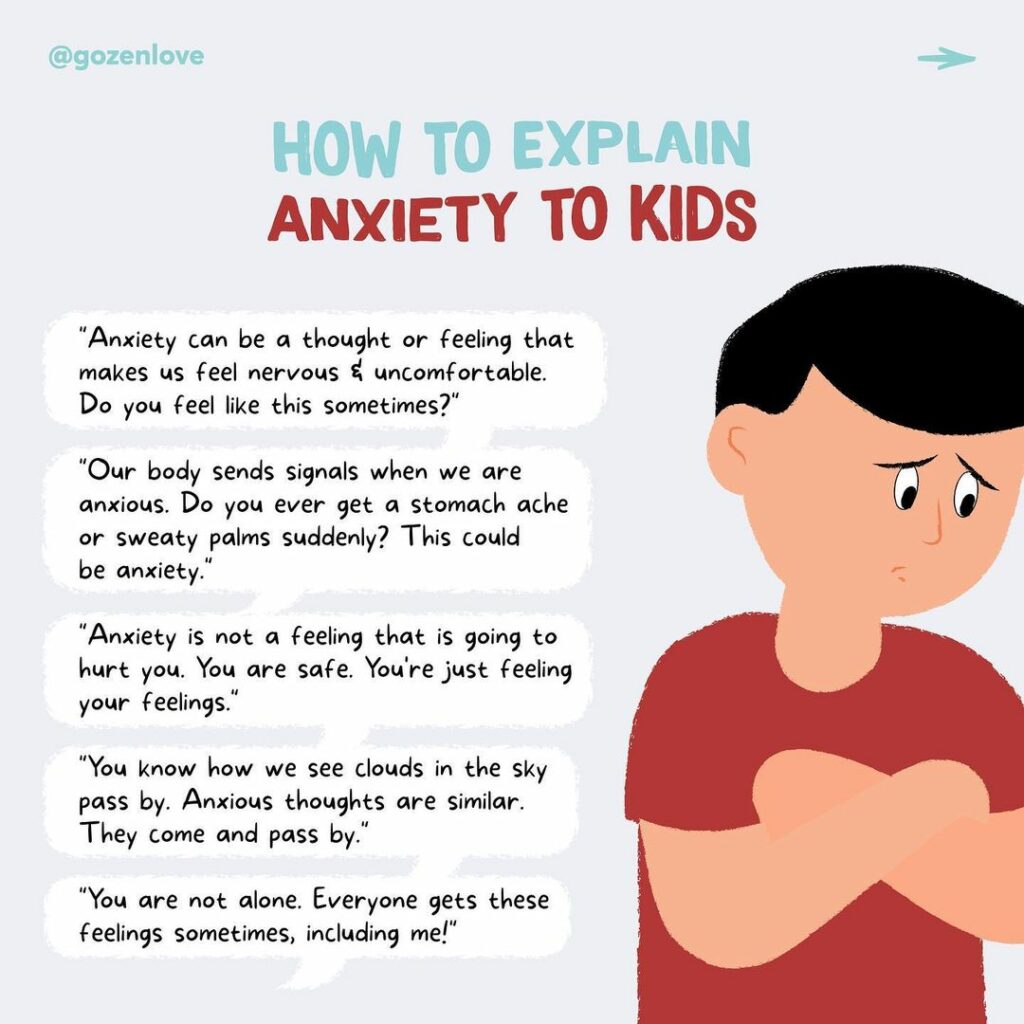Anxiety is tough! It can be uncomfortable, scary, and in extreme cases, it can prevent us from leading the lives we want to live. However, it’s ESPECIALLY tough when you don’t understand the feelings or their purpose. Unfortunately, that’s the case for so many kids.
While nobody appreciates anxious feelings, knowing what’s happening inside our brain and body does make it a little bit easier to deal with. When our feelings are explained to us, when we have knowledge, we feel safer while experiencing them, and we can even transform those feelings so they work for us, not against us.
But first things first: let’s make sure our kids understand their emotions. Mental health is a topic that should be freely explored within every household. The stigma around it has prevented a lot of families from discussing intense emotions like depression and anxiety. Our kids will certainly experience anxiety as they grow into adults, so let’s prepare them by educating them!
Here are five simple lessons that can help you get started explaining anxiety to your kids.
1. Anxiety can be a thought or feeling that makes us uncomfortable. Do you feel like this sometimes?
Just having a name for the feelings we’re having can be helpful. It’s hard to understand what we don’t have language for, so simply assigning the word anxiety to your kids’ worry-related tummy troubles, fast heart rate, or racing thoughts can open the door for communication, which itself can be a tremendous relief. Asking them the follow up question “Do you feel like this?” can help get a dialog going.
2. Our body sends signals when we are anxious. Do you ever get a stomach ache or sweaty palms suddenly? This could be anxiety.
It’s time for some simple science. Our bodies send signals when we experience certain emotions. When we’re anxious, our body is trying to alert us to danger. Even if there’s no real threat to us, anxiety plays things extra safe and sends signals anyway. That tummy ache and that racing heart sure got your attention didn’t it? That’s just your body doing its job, letting you know that it’s a little concerned.
3. Anxiety is not a feeling that is going to hurt you. You are safe. You’re just feeling your feelings.
Anxious feelings are scary! It’s hard for anyone to remember that they’re not actually dangerous, let alone kids. Doctors regularly get visits from adults who believe they’re having heart trouble when in fact it’s just a panic attack. So many of the physical signals we get from anxiety mimic illness: stomach pains, feeling warm and feverish, shortness of breath. It can help children a great deal if they understand why those feelings are happening, and that they’re not dangerous.
Your body is turning off things it doesn’t need, like digestion. Your body is preparing you for fight, flight, or freeze, so your heart and your breathing rate are getting faster. Your body is releasing hormones to make you stronger, so you feel a little shaky and tense. All the feelings can be explained, and the explanation can ease their worry.
4. You know how we see clouds in the sky pass by? Anxious thoughts are similar. They come and pass by.
It’s hard for kids to realize that most things in life aren’t permanent. Everything in their world feels like it lasts forever. Of course, like any feeling, anxiety doesn’t last, but your kids will often forget this. Give them a reminder! Remind them of the time they bumped their elbow and it hurt for a bit but eventually went away, or the time they were so excited about a new toy, but that eventually mellowed. Feelings don’t last, and that includes anxiety.
5. You are not alone. Everyone gets these feelings sometimes, including me.
Anxiety is isolating. It feels like nobody else understands, like we’re all alone, and that feeling of loneliness makes the anxiousness even worse. It also makes it really difficult to talk about. When it comes to feelings, there’s comfort in company. And when we know someone else will understand what we’re going through, it’s much easier to talk about it.
We cannot shield our kids from experiencing anxiety, so arming our kids with powers of emotional intelligence is more important than ever. If you’re looking for more tools and resources to help you have these important conversations, look no further than the vast library of resources available to our Family and Pro members. We have animated programs, printables, short stories, parent resources, games, and so much more. So if you’re not already a member, why not let us tell you more about everything we have to offer.
